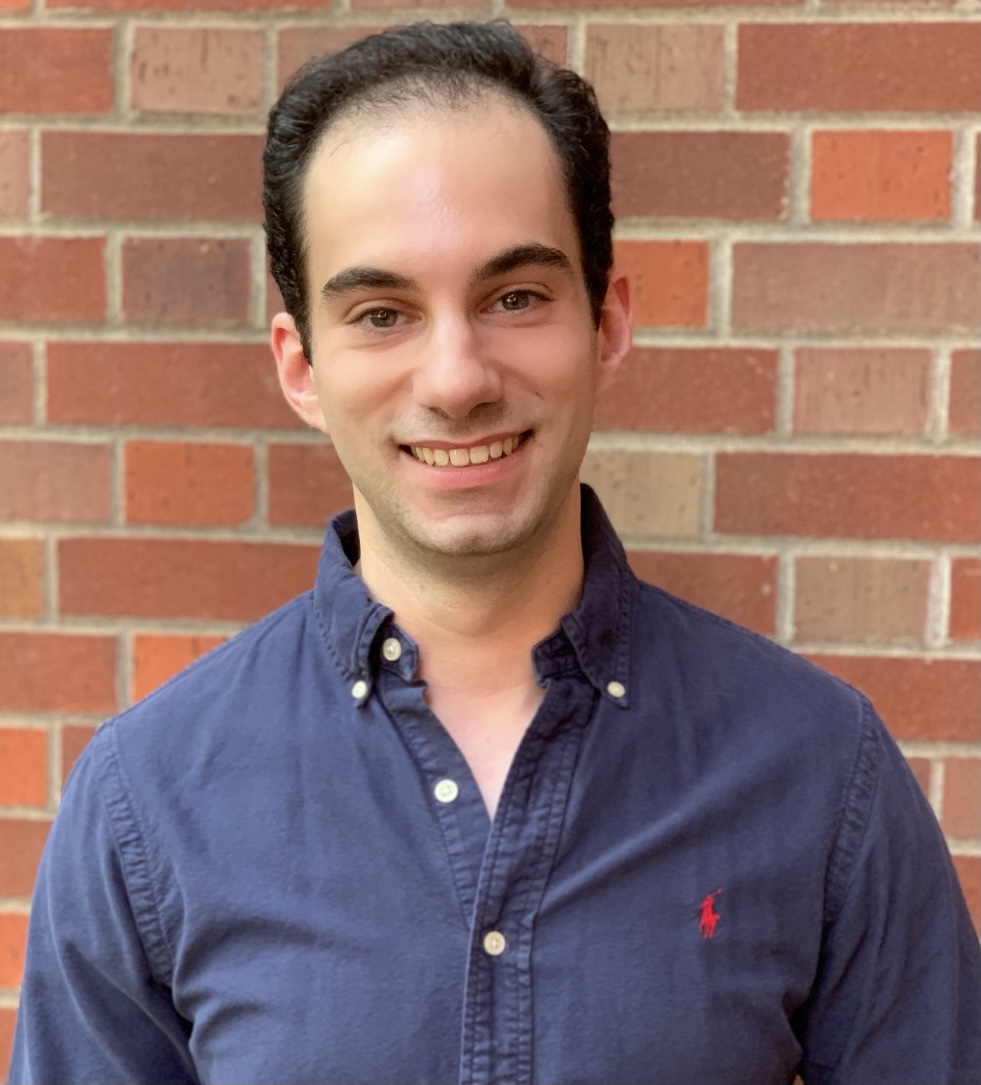TARGETED VIOLENCE RESEARCH TEAM |
|
|
Mario J. Scalora, Ph.D.
|
Education B.S., Psychology, St. Joseph’s University, 1982 Biosketch Dr. Scalora (he/him/his) is a Professor of Psychology at the University of Nebraska-Lincoln. His research interests address various types of targeted violence issues including threats to public institutions and infrastructure/threat assessment, sexual offending, and workplace violence. This research continues to involve collaboration with state and federal agencies dealing with threat management and counterterrorism issues. Dr. Scalora also collaborates with local, state, and federal law enforcement on threat assessment research assessing predictive risk factors concerning targeted threatening and violent activity. |
TEAM MEMBERS |
|
|
Maddie Eyer, M.A., M.L.S.
|
Education B.A., Psychology, Creighton University, 2018
M.A., Psychology, University of Nebraska Lincoln, 2020
M.L.S., University of Nebraska Lincoln, Nebraska College of Law, 2022
Internship: Western State Hospital, Tacoma, WA
Expected Ph.D.: 2024 Biosketch Maddie (she/her/hers) is a sixth-year graduate student in the Clinical Psychology Training Program at UNL. Maddie graduated from Creighton University in 2018, during which time her research focused on sexual recidivism and evaluation of sex offender treatment programs. Her current research interests include general and sexual violence risk assessment and the management of targeted violence. Maddie also holds an interest in the characteristics and warning signs of those most at risk to commit these types of violence. |
|
Patrick McGonigal, M.A., M.L.S.
|
Education B.A., Psychology, University of Massachusetts Amherst, 2016 Biosketch Patrick (he/him/his) is a sixth-year graduate student in the Clinical Psychology Training Program at the University of Nebraska-Lincoln. After graduating from UMass Amherst in 2016, Patrick spent two years at Rhode Island Hospital's Adult Partial Hospital Program as a clinical research assistant. Broadly, Patrick is interested in the prediction and management of violent and threatening behaviors in community, clinical, and forensic settings. His research focuses on targeted violence directed towards minority group populations, with a specific interest in the LGBTQ+ community. Patrick is concurrently in the joint MLS degree program at the Nebraska College of Law and maintains an interest in the role of research towards informing public policy and legislative efforts to prevent violent behavior and hate crime across local, national, and international levels. |
|
Jeremy Feiger, M.A.
|
Education B.A., Psychology, California State University Long Beach, 2016 Biosketch Jeremy (he/him/his) is a sixth-year graduate student in the Clinical Psychology Training Program at the University of Nebraska-Lincoln. He received his master’s degree in Psychological Research, from California State University Long Beach where he also received a bachelor’s degree in Psychology. At Long Beach, he conducted research examining relationships between frontal lobe functioning, mental illness, and risk for violent offending. Jeremy’s current research interests include the implications of neuropsychological factors associated with neurological injury and disease for violence risk assessment with forensically engaged individuals. Jeremy also works with Dr. Kathy Chiou in the Clinical Neuroscience and Neuropsychology lab studying neurocognitive and biological substrates associated with traumatic brain injury, comorbidity of psychiatric symptomology (i.e. psychosis, depression, aggression) and recovery and rehabilitation. |
|
Kailey Richner, M.A.
|
Education B.S., Psychology, Arizona State University, 2016 Biosketch Kailey (she/her/hers) is a sixth-year graduate student in the Clinical Psychology Training Program at the University of Nebraska-Lincoln. During her time at Arizona State, she worked with Dr. William Corbin to examine differences in subjective response to alcohol among Latinx groups, impacts of drinking context on the development of alcohol use disorders, and norms associated with sexual aggression. These experiences inform Kailey’s broad research interests of alcohol use, sexual aggression, and the ways social media and online interactions translate to in-person behaviors. These interests complement Dr. Scalora’s team interests where she is primarily working with Dr. Viñas-Racionero to develop a study examining cyber sexual coercion. Kailey also works with Dr. Dennis McChargue in the B-Smart lab where she is developing a dissertation examining the interactive effects of binge drinking and sexual arousal on various acts of sexual aggression perpetrated by college men. |
|
Elisha Chan, M.A.
|
Education B.S., Psychology and Biochemistry, University of Sydney, 2016 Biosketch Elisha (she/her/hers) is a fifth-year graduate student in the Clinical Psychology Training Program at the University of Nebraska-Lincoln. She graduated from the University of Sydney, Australia, in 2016, where she completed her thesis examining the effects of repeatedly recalling a traumatic event on memory, eyewitness suggestibility, and psychological response. From 2017 to 2019, Elisha worked as a research assistant for the Child Mind Institute in New York. Currently, Elisha is interested in exploring the predictive factors of various types of targeted violence, including violence that is perpetrated through electronic means (e.g., social media, emails, text messages). Of particular interest to her is the role of the Dark Tetrad personality traits in the perpetration of stalking and sexual violence. |
|
Adam Cotton, M.A.
|
Education B.A., Psychology, Emory University, 2015 Biosketch Adam (he/him/his) is a fourth-year graduate student in the Clinical Psychology Training Program at UNL. After earning his B.A. in psychology from Emory University in 2015, he split his time managing clinical research projects on rare neurological diseases at Emory University's School of Medicine and co-facilitating competency restoration groups at Georgia Regional Hospital's forensic treatment mall. Adam's current research interests revolve around risk factors and warning signs of targeted violence with a particularly emphasis on extremism and insider threat. |
|
Rasmus Grydehøj, M.A. |
Education Biosketch Rasmus (he/him/his) is a third-year graduate student in the Clinical Psychology Training Program at the University of Nebraska-Lincoln. He received his B.S. in Psychology from Grand Valley State University (GVSU) in 2018 and his M.A. in Forensic Psychology from Fairleigh Dickinson University (FDU) in 2021. During and after obtaining his Master’s degree, Rasmus has conducted research on various topics in the forensic psychology realm, including studies on imminent risk rating measures, female sex offenders, taxonomic differences between juvenile sex offenders, sexual grooming and child sex trafficking, U.S. marital rape laws, and offender community re-entry. Currently, Rasmus’ research interests are centered around the identification, assessment, and management of targeted violence, with a particular interest in furthering the empirical understanding of the warning behaviors that precede violent behavior. |
|
Lily Bopp, M.S.
|
Education B.S., Psychology, Sociology, Fordham University, 2014 Biosketch Lillian (Lily [she/her/hers]) is a third-year graduate student in the Clinical Psychology Training Program at the University of Nebraska-Lincoln. After graduating from Fordham University in 2014, Lily worked as a Forensic Case Manager at EAC Network, a not-for-profit social service agency, where she provided reentry services to individuals with co-occurring disorders reentering from various state prisons and co-facilitated groups on the mental health unit of a maximum-security prison. Later, she worked as a Program Coordinator, where she was tasked with overseeing several state and federal grant-funded prison reentry, civil commitment, and drug court diversion programs. Upon returning to Fordham University to pursue her master’s degree, Lily’s time was split between working as a research coordinator on a study examining neuropsychological functioning in sexual offenders with pedophilic disorder and as a Supervisor for a parole diversion program for seriously mentally ill parolees. Additionally, she completed a thesis that examined the utility of translated versions of the MMPI instruments in detecting response distortion with diverse populations. Lily’s current research interests focus on the assessment and management of individuals with sexual and stalking offenses and the effectiveness of different intervention strategies used to manage the individuals engaged in such forms of violence. |
|
Britany Mullins-Hussain, B.A.
|
Education B.A., Psychology, The Catholic University of America, 2019 Biosketch Britany (she/her/hers) is a second-year graduate student in the Clinical Psychology Training Program at the University of Nebraska Lincoln. After earning her B.A. in Psychology from The Catholic University of America in 2019, Britany worked as a Research Assistant for three years at the Center for the Study of Traumatic Stress (CSTS) in Bethesda, MD. At CSTS, Britany worked on a variety of projects centered on suicide, trauma, firearm ownership and behavioral practices, and interpersonal violence. These research experiences sparked her interest in further understanding targeted violence. Britany's primary research interests are in threat assessment and management across a variety of settings. She is specifically interested in bias and hate crimes, reporting behaviors, and firearm violence. |
|
Erin Beckham, B.A.
|
Education Biosketch Erin (she/her/hers) is a second-year graduate student in the Clinical Psychology Training Program at the University of Nebraska-Lincoln. After graduating from the University of Connecticut in 2019, Erin worked as a Research Assistant at the University of Massachusetts Medical School, where she worked on projects examining the co-occurrence of serious mental illness and substance use. Later, she worked as a Research Coordinator at McLean Hospital, where she assisted on a variety of projects related to suicide, trauma, and the use of digital interventions to increase access to care. Since joining the University of Nebraska-Lincoln, Erin has conducted research alongside Dr. Anna Jaffe involving alcohol use, interpersonal violence, and family systems, with a particular focus on sexual violence. Currently, Erin’s primary research interests focus on risk factors for the perpetration of interpersonal violence within families and romantic partnerships. |
|
Aidan Collins, M.S.
|
Education B.A., Psychology, Spanish, St. Norbert College, 2020 Aidan is a first-year graduate student in the Clinical Psychology Training Program at the University of Nebraska-Lincoln. After graduating from St. Norbert College in 2020, he went on to earn a masters in Clinical Research Methods from Fordham University. There, he was involved in numerous research projects related to risk assessment and interventions for forensic populations. He also completed a thesis that examined the predictive validity of the COMPAS risk assessment instrument among individuals with mental illness. Following completion of his masters degree, Aidan worked as a Forensic Case Manager at EAC Network, where he was responsible for developing and implementing treatment plans for individuals involved in mental health court. Aidan’s current research interests focus on violence risk assessment and the development of interventions to manage individuals with sexual offenses. |










